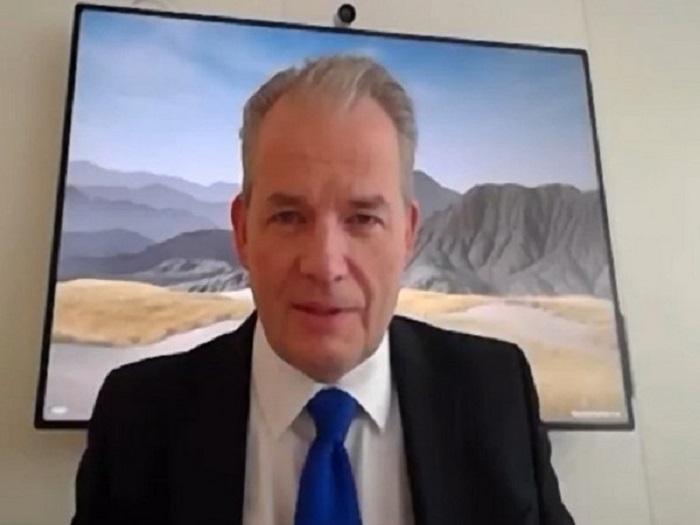
London : Concerns over the growing influence of pro-Khalistan radicals within the British Sikh community have been raised in 'Bloom Report,' an independent report that former UK Prime Minister Boris Johnson commissioned, reported Khalsa Vox.
Former British Prime Minister Boris Johnson, in October 2019, appointed Colin Bloom as an Independent Faith Engagement Adviser in order to make suggestions on how the government should interact with religious organisations in England. One of the most troubling aspects highlighted by Colin Bloom in the report is the manipulation of young, impressionable minds by Khalistani separatists. It underscores a more insidious dimension of the extremist issue: the exploitation of the innocent.
It is notable to mention that attacks by the Khalistani elements on Indian missions across the world have been rising over the course of time. On March 19, earlier this year, a group of Khalistanis vandalised the High Commission and showed disrespect to the Indian National Flag in London.
Such threats and attacks from pro-Khalistani elements rose after the killing of Khalistan Tiger Force chief Nijjar. A ‘Kill India’ rally was scheduled by Khalistani elements in Australia, UK, Canada and even in US following Nijjar's death.
However, the objectives of Bloom Report included determining what the government can do to acknowledge and support the contributions made by religious organisations within communities, the best way to remove obstacles and foster understanding between religious communities, the steps the government can take to promote shared values and combat harmful cultures and practises, and how it can promote, in addition to the freedom of religion, the values of freedom of speech, democracy, and the rule of law?
The sections of the study on Khalistan radicalism in the UK have, as they should have, created a firestorm of outrage, as per Khalsa Vox.
Khalsa Vox is a new-age online digest that brings to you the latest in Punjab politics, history, culture, heritage and more.
The Bloom Review, an independent report commissioned by the UK government to examine how it should interact with people of faith, has been dismissed by a group of Sikh attorneys in Britain who claim it is "colonialist" since it devotes 13 pages to “faith-based extremism.”
The perceived broad-brush approach of the report is the root of the problem. It is an egregious misrepresentation to say that the whole Sikh community is represented by the small percentage of Sikhs who participate in radical Khalistani activities. The vast majority of Sikhs are law-abiding, non-violent people who have little to no ties to radicalism.
Even though the Bloom Report does acknowledge the majority of peaceful people, its focus on the radical minority has troubling ramifications. But the report's conclusions cannot be discounted in any manner.
The problem here is that a few extreme Sikh diaspora members have come up and claimed to speak for the whole community. Given that radicals from Khalistan have committed several violent and aggressive crimes, that is both dangerous and deceptive.
According to the report, violent Sikh activists have attacked several politicians, professors, and bureaucrats and have abused or threatened anybody who criticises them. The UK government's inability to distinguish between the radical objectives of the dictatorship and the mainstream Sikh populations has raised concerns in the study, according to Khalsa Vox.
Here, one must ask: Is the Bloom Report entirely inaccurate? Despite its obvious flaws, it would be premature to dismiss it completely. It prompts legitimate worries about the existence of a minor but mighty extremist element inside the Sikh community, a danger that cannot be ignored.
It highlights a more insidious aspect of the extremist problem: the exploitation of the innocent.
In reality, this brainwashing of young Sikhs is a covert strategy to provoke them to pursue separatist goals under the pretence of preserving cultural heritage and freedom. The spread of extremist ideologies is dangerous, but so is the potential long-term harm to these young minds and the social fabric of our communities.
This calls for alertness, knowledge, and—most crucially—open discussions about the intricacies of our past and the dangers of radicalization, read the report.
The Bloom Report should be seen as a wake-up call. It emphasises the necessity of addressing and combating extremism in our community. Our first course of action should be to inform young people about the dangers of extremism, emphasise the values of peace and tolerance that Sikhism upholds, work with law enforcement to combat extremism, and publicly denounce extremist tendencies wherever we see them, reported Khalsa Vox.
The bombing of the Kanishka flight, attacks on Indian embassies and consulates in nations like Canada, the United States, Australia, and the United Kingdom, plans to bomb targets in London, and the plot to attack a police station in Birmingham serve as sobering reminders that the extremist problem is real and far from being insignificant.
The recent comments made by Lord Indarjit Singh of Wimbledon highlight how urgent the situation is. "People have been threatened and beaten up," he said. Such acts of intimidation and violence are intolerable.